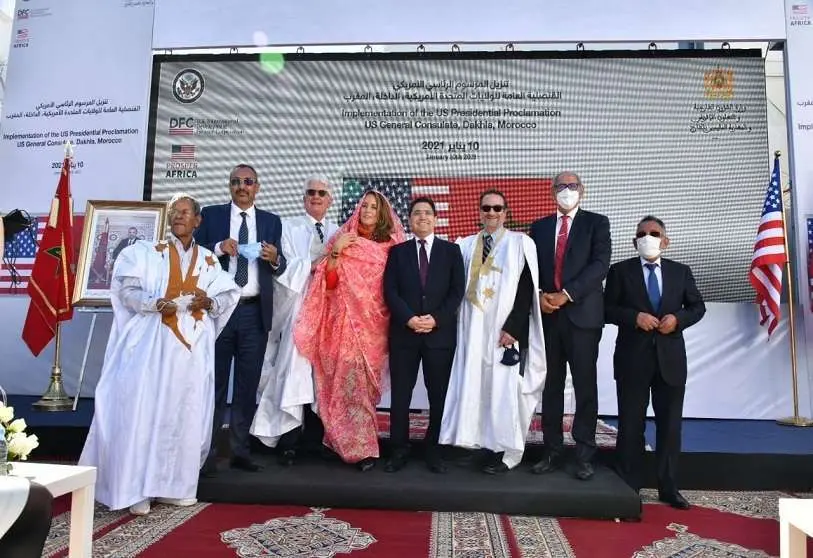Una delegación estadounidense visita su futuro Consulado en el Sáhara

A US delegation led by the Under-Secretary of State for the Middle East and North Africa, David Schenker, visited the city of Dakhla in Western Sahara in the company of the US ambassador in Rabat and the Moroccan foreign minister, Nasser Bourita.
During his visit, an event took place in the building that will house his announced consulate general in the Sahara, after recognising Moroccan sovereignty over this territory. The event was attended, in addition to the senior officials mentioned above, by other local and regional authorities.

His presence here is part of a tour he has undertaken of Western Sahara, during which he had previously visited the Sahrawi capital El Aaiun, as an official gesture following the telephone exchange between the King of Morocco and the US president a month ago.
David Schenker also met with Nasser Bourita to discuss the cooperation agreements, on which he stated that "the relationship is stronger than ever and the best is yet to come". Mr Schenker also praised the work of the Alaouite monarch over the last few decades. He said that "none of the successes achieved would have been possible without his leadership and support for peace in the Middle East and the development of the African continent".

The American consulate in Dakhla will have a mainly economic objective, as the United States has expressed great interest in investing in this coastal region, mainly in tourism but also in sectors such as energy. Mr Schenker has stressed the growth in trade between the two countries since trade barriers were removed in 2006. He also had a moment to celebrate the bicentenary of the oldest US diplomatic mission, which is precisely in Morocco, specifically in Tangiers.
Another of the aspects announced by Mr Schenker was the opening of schools in the region in order to stimulate the region's educational development. This shows that, as the undersecretary has indicated, relations with Morocco go beyond the commercial, economic or political sphere, and also affect the cultural sphere. In this respect he referred to the Marrakech Declaration on the Rights of Religious Minorities, 'an example of the effort Morocco has made to promote tolerance and religious harmony'.








